
Greenmeadow Tales Offer Inspiration
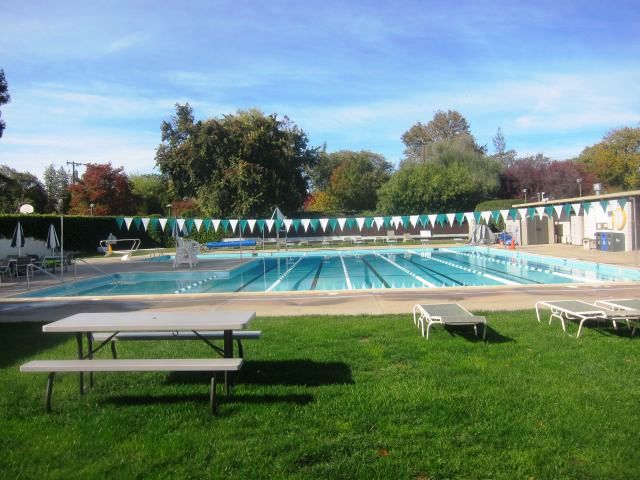 |
|
|
Throughout Palo Alto, Eichler neighborhoods have been roiled in recent years by threats to replace single-story Eichler homes with monster homes, and by frantic efforts to preserve neighborhood character.
One neighborhood that has remained free of such battles is Greenmeadow, due to a single-story overlay created years ago thanks to efforts by its community association.
Historical films created 25 years ago by neighbors, and recently made public through YouTube, reveal in a lively fashion how Greenmeadow came to be the special place it is today – and offer inspiration to people today interested in preserving their communities.
The bottom line message is, it’s better to get out in front of a problem than wait till it’s too late.
But first, a bit about the historic footage. The Greenmeadow Community Association introduces the set of films like this:
“Back in 1994 then Greenmeadow President Sigrid Pinsky suggested the idea of creating a video talking to Greenmeadow residents, including original owners about what it's like to live in Greenmeadow.
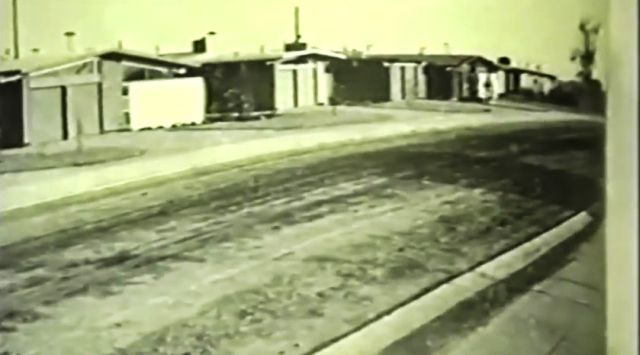 |
|
|
“This was done to commemorate the 40th Anniversary of the Greenmeadow neighborhood. This project grew into a series of five videos. We were lucky enough to recruit Steven Eichler, grandson of Greenmeadow's builder, Joseph Eichler, as our host and interviewer.”
The films include, Introduction; Greenmeadow History; Greenmeadow Architecture; Greenmeadow Community Association; Greenmeadow 4th of July.
What these documentaries show is just how successful the community has been, through its association and its various committees, in battling with and working with city officials on overall neighborhood and planning issues, and on controlling development in the tract itself.
It’s both ironic yet telling that perhaps the most important foe the residents of Greenmeadow faced was none other than Joe Eichler himself.
The battle against Joe, which came during the neighborhood’s very early days, involved a young lawyer who had just hung up his shingle, but would go on to much bigger things, including a seat in the U.S. House of Representatives and a run for the presidency, as a Republican, on an anti-Vietnam War platform.
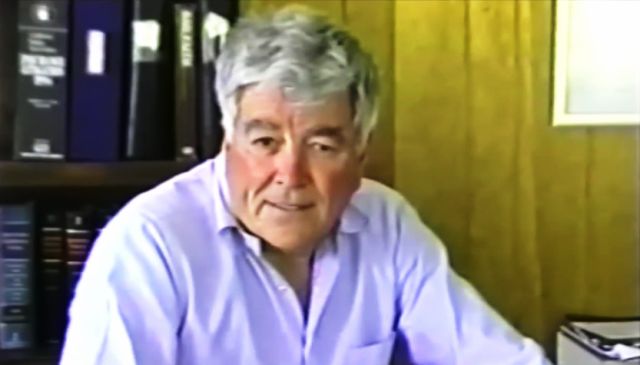 |
|
|
The battle was, one participant recalls, “a friendly suit,” because everyone really liked Joe Eichler.
But it was a crucial moment for Greenmeadow because to battle Eichler, residents first founded the Greenmeadow Community Association – the association that later prevented second-story additions throughout the neighborhood, which is now on the National Register of Historic Places.
Greenmeadow, built starting in 1954, was designed by Jones & Emmons as an entire community, with pool and community center at its core.
Original resident JoAnn Revis told interviewer Steven Eichler that she was attracted by the tract’s large lots and wide streets. “He could have put in more homes, squeezed them in like other builders did. But he didn’t do that,” she said.
Fred Crenshaw, whose family was the first to move into Greenmeadow, told a tale that says much about Joe Eichler’s personality – and foreshadows how Joe reacted to the homeowners’ lawsuit a few years later.
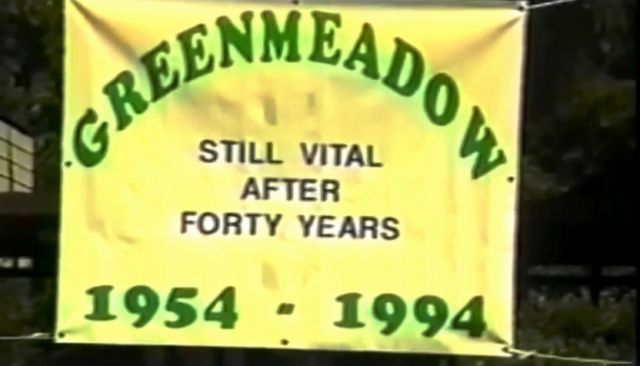 |
|
|
Crenshaw wanted to buy one of the model homes because it had four bedroom and he and his wife had five children. Only the model homes were finished at that time.
“I’m sorry,' Joe says, ‘but I can’t help you,’” Crenshaw recounted, adding, “He was a little rough with me."
“We don’t sell model homes till the whole tract is sold,” Joe said.
But Crenshaw persisted, for weeks. “I have a dire need for four bedrooms. I’m a salesman. You’re a salesman. Let’s get together and be reasonable,” Crenshaw argued.
Finally Joe told him, “ ‘You can have it.’ I said, Joe, I love you.”
Other residents tell about committees organizing to fight nearby developments and to deal with traffic, about getting to know members of the city council and school officials.
But no battle was more foundational than the one with Joe Eichler, who announced just as phase one of Greenmeadow was selling out that Eichler Homes planned to lease the pool to a pool operator to run as a commercial venture.
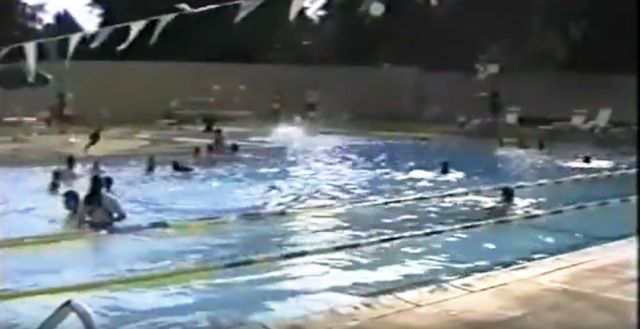 |
|
|
“Will we only get it at odd hours?” neighbors worried, according to Pete McCloskey, their young lawyer, who later became their Congressman. He said buyers had been told the pool would be for their use.
“They were all young couples,” McCloskey said. “These people had three or four kids, and they wanted to be able to use the swimming pool for more hours than Mr. Eichler had allowed after he announced his lease.”
McCloskey found a similar case from Los Angeles in the 1920s and planned a suit. About ten people in Greenmeadow spearheaded the fight – but none wanted to be the named plaintiff in the case. So they drew straws. The case became Farr v. Eichler, or Farquahr v. Eichler, McCloskey recalled.
But the named plaintiff said, “We kind of like old Joe Eichler. He’s built these great homes. We love these homes. Let’s see if we can talk him out of us trying to sue him,” McCloskey recalled.
In order to meet Eichler, not as individuals, but as a united group, neighbors formed the Greenmeadow Association, its first president, John Berwald, told Steven Eichler.
Much as he did with Fred Crenshaw, Eichler acquiesced to the neighbors before going to court.
“Mr. Eichler offered the property to us at $20 thousand,” Berwald recollected. “Everybody thought that was a good deal. I said, no, I’ll give you $10,000. He agreed.”
The pool, which is undergoing restoration, remains a central feature of life in Greenmedow to this day.
- ‹ previous
- 289 of 677
- next ›



